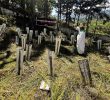[one_third_last]Brad Adams, Asia director for the Human Rights Watch, said the Ampatuan massacre has “brought to light” the dangers posed by private armies, militias, and paramilitaries in the country “but the administration of President Benigno Aquino III has not seriously addressed the problem.”
By MARILOU AGUIRRE-TUBURAN
Davao Today
DAVAO CITY, Philippines — Three years after the gruesome killing of 58 people, 32 of whom are media workers, by the private army of the powerful Ampatuan clan in Maguindanao province, various groups and individuals are criticizing the slow pace of the trial and the Aquino government’s failure to arrest the perpetrators.
“It is my fervent hope that justice, without sacrificing due process, will finally be achieved and the case will be decided the soonest so that the perpetrators be appropriately punished,” lawyer Israelito Torreon of the Integrated Bar of the Philippines-Eastern Mindanao told davaotoday.com.
Torreon hopes that the adage ‘justice delayed means justice denied’ will not happen in the case of the Ampatuan massacre.
On November 23, 2009 in Ampatuan town, Maguindanao Province, about 200 armed men massacred a group of 58 individuals composed of relatives and supporters of now Maguindanao governor Esmael Mangudadatu, media workers and passersby. The victims were on their way to register Esmael’s gubernatorial candidacy for the 2010 elections. Esmael was said to be a political threat for the Ampatuans.
Out of the 197 suspects who were identified, only 99 have been arrested while the rest remain at large who are mostly members of the Civilian Volunteer Organization (CVO). Only two of the principal suspects were arraigned while only 81 from those arrested have been indicted. One died in jail while another was released after charges against him were dropped.
The families and relatives of the victims are also facing threats, intimidation and bribery allegedly with the Ampatuans behind. This year, the widow of victim Alejandro ‘Bong’ Reblando has decided to leave the country because of fear.
Since the massacre happened, at least three witnesses have been killed, including Suwaib Upham, an Ampatuan militia member who had agreed to testify.
“This sends a message of terror to other witnesses, who now choose to voluntarily muzzle themselves rather than end up dead,” said Jorge ‘Ka Oris’ Madlos, spokesperson of the National Democratic Front of the Philippines-Mindanao.
He added that witnesses who are still alive “are being enticed to slink back to silence with bribes” while “those who are still dogged with their conviction to punish the Ampatuans are being threatened.”
With these, lawyer Leah Librado-Yap told davaotoday.com that, “Justice for the victims remains elusive. It marks how slow our justice system is.”
While justice for the massacre victims is continuously being sought, Librado-Yap said, the move to abolish private armies must also be pushed.
‘Dismantle private armies’
“The Aquino administration has done little to disarm and demobilize militias and paramilitary forces,” Brad Adams, Asia director for the Human Rights Watch (HRW), said.
HRW said that the Ampatuan massacre has “brought to light” the dangers posed by private armies, militias, and paramilitaries in the country “but the administration of President Benigno Aquino III has not seriously addressed the problem.”
The group said that Aquino should rescind Executive Order 546 which allows the arming of CVOs by local officials. Said EO, issued by former President Gloria Macapagal-Arroyo in 2006, was used by the Ampatuans to justify their “recruitment and arming of militia members, ostensibly to fight Islamist rebels but in reality to consolidate their hold on power.”
HRW fears that EO 546 will be used by powerful politicians to arm militias prior to the midterm and local elections next year.
The Department of Interior and Local Government (DILG) already identified 15 provinces as “election hotspots,” areas where election-related violence has occurred and is likely to worsen prior to the 2013 elections. Four Mindanao provinces were identified as “hotspots” including the province of Maguindanao.
The Aquino administration has claimed of neutralizing 28 so-called “private armies.” However, it identified 107 more last week, which the DILG said “might be used to harass voters.”
According to NDFP’s Madlos, the Aquino government has not “torn down” large and powerful private armies in Mindanao apart from the Ampatuans. He cited the Dimaporos in Lanao, the Mangudadatus in Sultan Kudarat and Maguindanao, the Cagasas and Camineros in Davao del Sur, the Parojinogs in Misamis Occidental, the Jalosjoses in Zamboanga and the Romarates in Surigao del Norte, among others.
“Without doubt, these private armies, which spread across Mindanao, continue to wreak havoc and perpetrate human rights violations in numerous communities. Aquino is complicit to these on-going carnage, until and unless he effectively tears down these warlords’ private armies,” Madlos said.
“Aquino pledged during the campaign that he would revoke Executive Order 546, but he has reneged on that promise,” Adams said, adding that “With one stroke of a pen, he can make good on his commitment for the good of all Filipinos.”
HRW also urged Aquino to issue an executive order banning all paramilitary and militia forces as well as issue an executive order requiring all government officials to report firearms acquired for professional or personal use for themselves or immediate family members. It also urged to amend Executive Order 194 to limit the number and caliber of firearms that civilians can own; and for Aquino to order an appropriate government agency to investigate whether public funds have been used directly or indirectly for creating, arming, and supporting militia forces, and if so, the source of the funds.
Adams said that it is not only important that the victims of the Ampatuan massacre get justice “but that the government acts to ensure that an atrocity like this will never happen again.”
IBP’s Torreon said that the Ampatuan case serves as the microcosm of the Philippine Justice System, hence, it is imperative that a balance must be struck fast between the need to comply with the requirements of due process vis-à-vis the need to find a swift resolution of the case.
“The people must not allow the “trial of the century” to tragically turn into “the farce of the century,” said Madlos. He added, “if left unguarded” it will bring great injustice not only to the victims, their families and the mass media community but to the nation as well.
“Arm in arm with the families of the victims, we must challenge the Aquino government to prove, once and for all, that it can convict the Ampatuan warlords, and arrest and punish those who still remain at large,” Madlos said. (Marilou Aguirre-Tuburan/davaotoday.com)
Extrajudicial Killings









